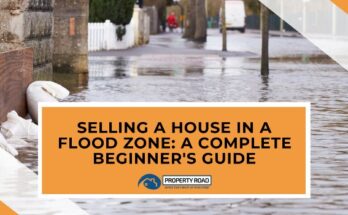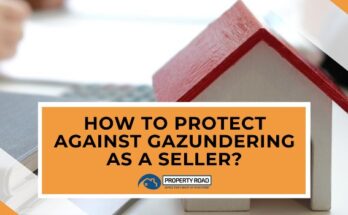There could be many reasons, or just one, as to why you are thinking of pulling out of a house sale, but how do you do this?
Pulling out of a house sale is something that is not undertaken lightly because you need to understand the repercussions of what you can and cannot do.
Most of this article is aimed at house buyers in England and Wales because the rules in Scotland are different.
So, in England and Wales there’s a very simple answer to the question, ‘Can I pull out of a house sale?’
And the answer is ‘Yes!’.
You can pull out of a house sale at any point up until the exchange of contracts.
Once you have exchanged contracts, then you have entered into a legally binding contract that will mean you are subject to its terms.
Can I pull out of the house sale before contracts are exchanged?
As stated, you can pull out of a house sale before your contracts are exchanged, but there will be certain charges to pay.
If you are the house seller and are pulling out, you need to check very carefully the terms of your agreement that was signed with your estate agent.
Put simply, if they have found you someone to buy your house, and they are able and willing to complete, but it is you who is withdrawing from the sale, then you may still have to pay the agent’s fee.

In addition, you will also need to check the terms of the contract with your conveyancer or solicitor.
This advice also extends to the potential buyer pulling out of a house sale.
Essentially, if your conveyancer has begun work on the purchase or sale of a property, then they may charge for the work done.
This charge will probably reflect the hourly rate carried out for the work.
Also, any financial disbursements that have been made by your conveyancer will also need to be paid by you.
The disbursements are for the costs that include a request for local authority searches.
It’s also worth noting that if you are selling a leasehold property and pull out of a sale, then any payments made to the managing agents or landlords by the conveyancer for information may also not be recoverable.
For a house buyer pulling out of a sale, then any costs you spend on a lender’s administration fees, and a mortgage adviser’s fees, will also not be recoverable.
Can I pull out of a house sale after exchanging contracts?
There may be several reasons why you want to pull out of a house sale after exchanging contracts, but you will be breaching the contract’s terms.
This may lead to the other party – the person who is not at fault – to issue what is known as a ‘Notice to Complete‘.
This is a legal notice that the party who pulled out has a 10-day grace period for them to complete the sale.
The recipient of the notice – that is the person pulling out – is also liable to pay interest which is calculated daily to the other party.
Also, it’s worth noting:
- Both sides, regardless of which side issued the notice to complete, most be able and willing to complete the sale within 10 days.
- Should one side be unable to complete, they will be in breach of contract – this is the case even if they did not issue the notice.
As the buyer

If you want to withdraw from a sale after the exchange of contracts, and you are the buyer, then you need to understand:
- The property seller will be entitled to end the contract;
- The seller will be entitled to keep the deposit paid – this is usually 10% of the sale price;
- The property seller is then free to re-sell the property and contents that have been agreed in a contract;
- The seller is also able to claim damages from the buyer pulling out;
- The seller can also claim any potential losses that have been incurred, such as market depreciation in the property’s price.
As the seller
There are also some legal obligations on the seller pulling out of a sale after contracts have been exchanged, they include:
- If the seller fails to complete the sale, the buyer can claim a daily rate of interest for the notice to complete
- The buyer can also claim the original deposit
- The buyer must also return any documents they have received to the property seller – the seller must pay this expense.
There’s also an issue over the breach of contract should either side fail to complete.
This could mean either the seller or buyer could put in a court claim for any extra losses they may have incurred.
Pulling out of a house sale in Scotland
For those in Scotland asking, ‘Can I pull out of a house sale?’, the answer is rather different.
Whereas in England and Wales, the answer is ‘Yes’, in Scotland it will be, ‘It depends’.
You can pull out of a house sale before ‘missives are concluded’.
You cannot pull out of a house sale after the missives have been concluded.
The big difference when it comes to buying a house in Scotland, is that there is an exchange of letters between the seller’s and the buyer’s solicitors.
As part of this process, the seller will usually agree to a number of conditions and then this will be a ‘qualified acceptance’ of the buyer’s offer.
These formal letters are known as ‘missives’ and there will be to-ing and fro-ing between both sets of solicitors as they arrive at the position of qualified acceptance.
At this point, the acceptance is known as the ‘missives are concluded’.
While the missives are under negotiation, either the buyer or seller may pull out of a proposed sale.
Once the missives are concluded, neither party can pull out.
When will a buyer usually withdraw their offer?

There are various reasons as to why a buyer may decide to pull out of buying a house before contracts are exchanged.
According to research, the reasons why buyers pull out include:
- The buyer has changed their mind on buying a property;
- The buyer cannot access a mortgage to buy the property;
- Issues have been highlighted with the property survey.
This last point is really important.
The buyer will hire a conveyancer to take care of the legal paperwork, but they will also hire a surveyor to inspect the property.
This could be a sound investment because the surveyor may find that the roof, for example, needs replacing.
This then gives the buyer a position to negotiate from so they may decide to lower their offer.
However, the seller may decide they are not willing to drop the price so the buyer will then withdraw their offer and resume their search for another house.
Selling A Property? FREE Step-By-Step Platform
How much will it cost to pull out of a house sale?
There will be some costs incurred when pulling out of a house sale.
In England and Wales, it will unfortunately be the house seller who will lose the most money.
However, since the rules in Scotland are different, it tends to be the buyer who will lose the most money.
It’s always a good idea that if you are serious about buying a potential property that before you put in an offer to buy it, you need to know that you can afford to buy it.
For this reason, it is a good idea to get a mortgage in principle agreed.
Various surveys have found that more than half of buyers racked up costs of £2,727 when someone pulled out of a house sale.
However, for 12% of sellers, they were left out of pocket to the tune of £5,000.
In addition to pulling out of a sale, the house seller may also incur other fees from their searching for another property to buy which they will then probably need to pull out from.

If the seller does pull out, the buyer could claim:
- Their conveyancing costs;
- The mortgage administration costs;
- Their property survey costs;
- The cost of any searches;
- Any building insurance costs.
What is the process to pull out of a house sale?
The process to pull out of a house sale is straightforward: you simply contact your conveyancer or solicitor to tell them that you are pulling out.
They will then inform the other party and will take the necessary steps.
If you want to pull out of a sale after the exchange of contracts, you still need to notify your solicitor or conveyancer.
They will explain that you are legally bound to the transaction because you have agreed contractually to complete on a set date for the transfer of the house.
If you are the buyer wanting to pull out of a house sale, then you really need to consider whether losing the deposit you have paid is worth it.
Remember that this deposit is usually 10% of the house selling price.
House sellers also need to be wary should a potential buyer pull out of a sale, particularly if they are wanting a quick sale – and have told their buyer the reasons why.
This may mean the buyer will use a last-minute tactic to lower the house price by threatening to pull out of an exchange of contracts.
What could go wrong with a house sale on completion day?
Along with pulling out of a house sale, something could go wrong on completion day.
This could mean that there will be a delay to your moving into a new property, or the transaction may completely fail.
The process to complete on completion day consists of three elements:
- A mortgage lender will give the money to the buyer’s solicitor;
- The buyer’s solicitor will then organise transferring money to the seller’s solicitor;
- The house seller will then hand over the property’s keys.
Should either party pull out on completion day, then a notice to complete will be instigated because the contract to sell has been breached.
If the completion has been delayed, usually by a day or so, it could be possible that whoever serves the notice to complete could reclaim the fees they incur. You may also be asking:
How can I reduce the risk of a buyer pulling out?

There are steps you can take to help protect yourself from the potential financial loss when a buyer pulls out of a sale. They include:
Reducing the contract exchange completion time
There’s no doubt that the length of time between exchange and completion means the chances will increase of one party pulling out. This can be resolved by limiting the time and exchanging and completing on the agreed day.
Evicting tenants before you exchange
If you are a landlord selling a property with tenants living there, then you need to ensure the property is empty which may mean evicting tenants. If you cannot evict your tenants, then you may need to take specialist legal advice and you should halt the completion process.
Get a mortgage offer before exchanging
The buyer should take steps to ensure they can pay for a property – and you may find that most solicitors will not allow a buyer to make an offer to purchase a home before they have a mortgage.
Usually, a mortgage offer will last up to six months.
The risk for the buyer is that they may be struggling to get a mortgage offer before being served with the notice of completion.
Legal cover
There are ways to limit any financial risk should a transaction fail so you may require legal cover.
There are insurance providers available for providing financial protection for when a transaction fails.
However, the 10% deposit paid by the buyer may not be covered by an insurance policy, but the mortgage valuation and conveyancing costs will be.
Pulling out of a house sale
Essentially, if you are thinking of pulling out of a house sale, you need to think very carefully about where you are in the buying or selling process and for any costs that have been incurred or whether you risk being served with a notice of completion. The first step is to speak with your conveyancer or solicitor for their legal advice about the steps to take and of any potential costs that you may incur – not doing so could mean being left with a very large bill for pulling out.
This article by Property Road does not constitute legal or financial advice and it is always worth contacting a solicitor or conveyancer to have the situation on how to pull out of a house sale explained in legal terms.





